Funk Live Radio Stations
Radio Stations
- _Funky Corner Radio (Spain)
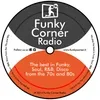
- _Funky Corner Radio (USA)

- _Radio Energy Classic (Italy)_Radio Energy Classic (Italy)
- - 0 N - 60s on Radio

- - 0 N - 60s on Radio

- - 0 N - Disco on Radio

- - 0 N - Disco on Radio

- - 0 N - Gold on Radio

- - 0 N - Gold on Radio

- - 1 A - 60er von 1A Radio

- 1.FM - Funky Express Radio

- 1000 Discohits

- 1580 HipHop on Dash

- 54 Funk Soul Dance (laut.fm)
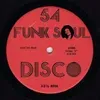
- 674FM

- 70 80 Disco Funk ModernSoul e Boogie
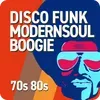
- 70's on Dash

- 70/80 Non Stop70/80 Non Stop
- 70s 80s Disco Funk ModernSoul Boogie

- 80s Radio

- ABF World

- Abusia Radio

- Aïoli Radio

- AK RadioAK Radio
- Allzic Radio Funk

- Alternative Radio
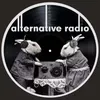
- Amsterdam Funk Channel

- Anyway SmoothAnyway Smooth
- Art Of Music

- AudioasylAudioasyl
- B4B DISCO FUNK OFFICIAL

- B4B Radio DISCO FUNK
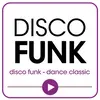
- B4B RADIO FUNK

- Back2Back FMBack2Back FM
- Baltic Radio

- Base FMBase FM
- Bayou Blue Radio

- Be

- Best 94.7

- BIG3 Radio with Ice Cube

- Black Duck

- Brum Radio - Birmingham

- C Lab

- Cadillac Records

- Cadillacc with Snoop Dogg

- CalamarrradioCalamarrradio
- Canal JazzCanal Jazz
- Central Coast Radio.com

- chocolate-radio.com

- CLASSIC HITS RADIO

Choose a Genre
Funk Music: The Groovy Beat that Shaped a Generation
Funk music is more than just a genre—it's a rhythmic revolution. Emerging from African American communities in the 1960s and 1970s, funk became a groundbreaking force in music, blending complex rhythms, groovy basslines, and soulful vocals to create a sound that resonated far beyond its origins. With its infectious beats and undeniable energy, funk laid the foundation for countless music genres that followed, including Hip Hop, R&B/Urban, and Electronic Dance Music (EDM).
Today, funk music is celebrated as one of the most influential genres in modern music history. Funk radio stations play a crucial role in keeping this genre alive, offering listeners a dynamic mix of classic hits from legendary artists and fresh sounds from the latest emerging talent.
The Origins and Sound of Funk
Funk is known for its distinctive sound—a rich combination of syncopated rhythms, heavy bass, and dynamic brass and percussion sections. At its core, funk is all about the groove. It's music that moves you, from the rhythmic foundations set by bass and drums to the catchy horn sections that bring an extra layer of soul.
Artists like James Brown, often referred to as the "Godfather of Soul," were pioneers in the development of funk music. His emphasis on rhythm, repetition, and the "one" (the downbeat) redefined the musical landscape. Brown's influence is still felt today in nearly every genre of popular music.
Groups like Parliament-Funkadelic, led by George Clinton, expanded funk into a more experimental and eclectic form. With their mix of psychedelia, funk, and rock, they created an audacious and immersive musical universe that continues to inspire artists today. Sly and the Family Stone, another key figure in the genre, blended funk with elements of soul and rock, helping to define the sound of the late 1960s and early 1970s.
The Role of Funk Radio Stations
Funk radio stations play a key role in preserving and promoting this genre. These stations offer a wide array of programming that spans the decades of funk music—from the classics that defined the genre in the 1970s to the newer, innovative sounds emerging today. Whether you're a long-time fan or a newcomer to the genre, funk radio stations provide a diverse listening experience that keeps the spirit of funk alive.
In addition to playing music, funk radio stations often feature interviews with funk music icons, as well as emerging artists who are pushing the boundaries of funk and blending it with modern sounds. These stations also dive into the cultural significance of funk, discussing the genre's origins and its role in shaping American music.
Listeners can tune in for discussions about the latest trends in the funk world, with live performances from top funk artists, special programming that explores the legacy of funk, and shows dedicated to the genre’s influence on other styles of music.
Connecting with African American Culture
One of the most important aspects of funk music is its deep connection to African American culture. Funk emerged as a cultural response to the social and political climate of the time, reflecting the struggles, triumphs, and resilience of African American communities. The groove-heavy beats and powerful vocals were not only a form of artistic expression but also a celebration of Black identity, resilience, and creativity.
Funk radio stations offer a unique opportunity for listeners, regardless of background, to connect with the cultural roots of the genre. Through its music, funk offers a window into the rich traditions and history of African American communities. The genre’s blend of African rhythms, jazz influences, and gospel traditions speaks to the soul of the community and continues to be an important force for expression and empowerment.
Supporting New and Independent Funk Artists
Funk radio stations also provide a vital platform for new and independent funk artists. As the genre continues to evolve, these stations help to spotlight fresh voices and new interpretations of funk. By showcasing emerging talent, funk radio stations ensure that the genre stays relevant and dynamic, while also helping to sustain the funk music industry.
Many funk radio stations feature unsigned artists who might not get airplay on mainstream channels, giving them exposure to a wider audience. This support of independent musicians is crucial in fostering a thriving, innovative music scene that continues to push the boundaries of what funk can be.
A Global Legacy of Funk
Funk is not just an American phenomenon. The genre’s infectious rhythms and grooves have crossed borders and become a global movement, influencing musicians around the world. From Afrobeat to funk-infused electronic music, funk has left an indelible mark on music scenes across the globe.
Funk radio stations also serve as an important way for listeners worldwide to connect with the global funk movement. These stations bring together fans from different cultures and regions, all united by their love for the genre’s unmistakable beat. In doing so, funk has proven itself to be a genre with lasting global appeal.
Conclusion
Funk music is a genre that’s built to move you, both physically and emotionally. With its deep roots in African American culture and its revolutionary influence on modern music, funk continues to resonate with fans around the world. Funk radio stations are a key part of this ongoing legacy, providing a platform for both legendary and emerging artists, while connecting listeners with the vibrant cultural traditions that define funk music.
Whether you're grooving to the sounds of James Brown or discovering the latest funk-inspired tracks from new artists, these stations keep the funk alive, ensuring that the groove never stops.
Funk music is more than just a genre—it's a rhythmic revolution. Emerging from African American communities in the 1960s and 1970s, funk became a groundbreaking force in music, blending complex rhythms, groovy basslines, and soulful vocals to create a sound that resonated far beyond its origins. With its infectious beats and undeniable energy, funk laid the foundation for countless music genres that followed, including Hip Hop, R&B/Urban, and Electronic Dance Music (EDM).
Today, funk music is celebrated as one of the most influential genres in modern music history. Funk radio stations play a crucial role in keeping this genre alive, offering listeners a dynamic mix of classic hits from legendary artists and fresh sounds from the latest emerging talent.
The Origins and Sound of Funk
Funk is known for its distinctive sound—a rich combination of syncopated rhythms, heavy bass, and dynamic brass and percussion sections. At its core, funk is all about the groove. It's music that moves you, from the rhythmic foundations set by bass and drums to the catchy horn sections that bring an extra layer of soul.
Artists like James Brown, often referred to as the "Godfather of Soul," were pioneers in the development of funk music. His emphasis on rhythm, repetition, and the "one" (the downbeat) redefined the musical landscape. Brown's influence is still felt today in nearly every genre of popular music.
Groups like Parliament-Funkadelic, led by George Clinton, expanded funk into a more experimental and eclectic form. With their mix of psychedelia, funk, and rock, they created an audacious and immersive musical universe that continues to inspire artists today. Sly and the Family Stone, another key figure in the genre, blended funk with elements of soul and rock, helping to define the sound of the late 1960s and early 1970s.
The Role of Funk Radio Stations
Funk radio stations play a key role in preserving and promoting this genre. These stations offer a wide array of programming that spans the decades of funk music—from the classics that defined the genre in the 1970s to the newer, innovative sounds emerging today. Whether you're a long-time fan or a newcomer to the genre, funk radio stations provide a diverse listening experience that keeps the spirit of funk alive.
In addition to playing music, funk radio stations often feature interviews with funk music icons, as well as emerging artists who are pushing the boundaries of funk and blending it with modern sounds. These stations also dive into the cultural significance of funk, discussing the genre's origins and its role in shaping American music.
Listeners can tune in for discussions about the latest trends in the funk world, with live performances from top funk artists, special programming that explores the legacy of funk, and shows dedicated to the genre’s influence on other styles of music.
Connecting with African American Culture
One of the most important aspects of funk music is its deep connection to African American culture. Funk emerged as a cultural response to the social and political climate of the time, reflecting the struggles, triumphs, and resilience of African American communities. The groove-heavy beats and powerful vocals were not only a form of artistic expression but also a celebration of Black identity, resilience, and creativity.
Funk radio stations offer a unique opportunity for listeners, regardless of background, to connect with the cultural roots of the genre. Through its music, funk offers a window into the rich traditions and history of African American communities. The genre’s blend of African rhythms, jazz influences, and gospel traditions speaks to the soul of the community and continues to be an important force for expression and empowerment.
Supporting New and Independent Funk Artists
Funk radio stations also provide a vital platform for new and independent funk artists. As the genre continues to evolve, these stations help to spotlight fresh voices and new interpretations of funk. By showcasing emerging talent, funk radio stations ensure that the genre stays relevant and dynamic, while also helping to sustain the funk music industry.
Many funk radio stations feature unsigned artists who might not get airplay on mainstream channels, giving them exposure to a wider audience. This support of independent musicians is crucial in fostering a thriving, innovative music scene that continues to push the boundaries of what funk can be.
A Global Legacy of Funk
Funk is not just an American phenomenon. The genre’s infectious rhythms and grooves have crossed borders and become a global movement, influencing musicians around the world. From Afrobeat to funk-infused electronic music, funk has left an indelible mark on music scenes across the globe.
Funk radio stations also serve as an important way for listeners worldwide to connect with the global funk movement. These stations bring together fans from different cultures and regions, all united by their love for the genre’s unmistakable beat. In doing so, funk has proven itself to be a genre with lasting global appeal.
Conclusion
Funk music is a genre that’s built to move you, both physically and emotionally. With its deep roots in African American culture and its revolutionary influence on modern music, funk continues to resonate with fans around the world. Funk radio stations are a key part of this ongoing legacy, providing a platform for both legendary and emerging artists, while connecting listeners with the vibrant cultural traditions that define funk music.
Whether you're grooving to the sounds of James Brown or discovering the latest funk-inspired tracks from new artists, these stations keep the funk alive, ensuring that the groove never stops.